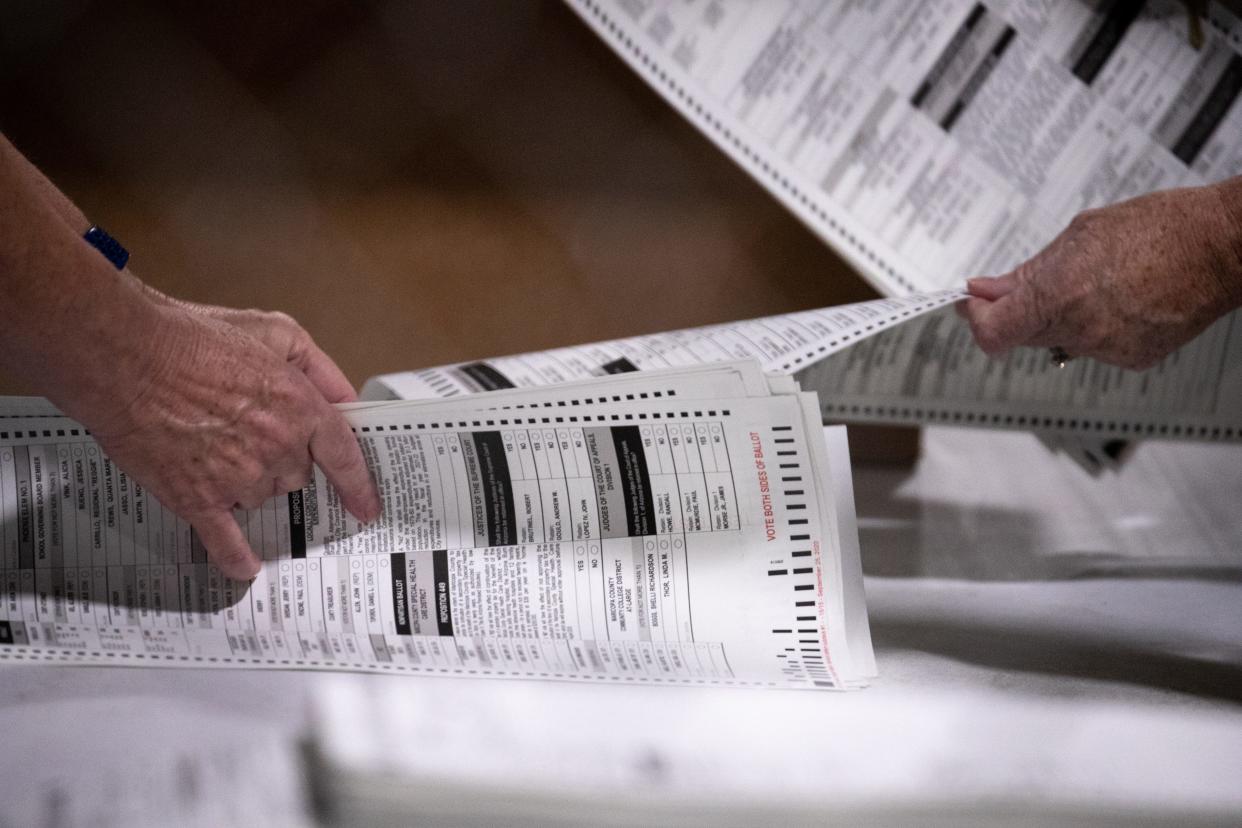Campaign launches to revamp Arizona primary system, eliminate partisan ballots

A bipartisan group of Arizonans has formally launched a campaign asking voters to amend the state constitution next year to remake the state primary election system and allow independents to participate more easily.
The Make Elections Fair Act would implement a series of changes to Arizona elections, with supporters arguing it brings competition and fairness in a state where independent and unaffiliated voters outnumber registered Democrats and Republicans.
A key part of the initiative would allow independent and unaffiliated voters — those who choose not to register with a major party — to vote in primaries by eliminating partisan ballots in favor of a single ballot given to all voters. This type of election is often called an "open primary."
"It’s time we fixed an election system that discriminates against the majority," Sarah Smallhouse, an independent voter and chair of the Make Elections Fair Committee, the group backing the initiative, said in a statement. "Our taxpayer-funded elections should give all voters in Arizona the same opportunity to participate."
Arizona elections: Your ballot likely will have fewer ballot measures in 2024. Here's why
Those voters can vote in statewide primaries in August now but must choose which partisan ballot they'd like to receive.
To vote in Arizona's separate presidential preference election, they must change their registration to join a party.
The presidential preference election in March has been around for three decades. Lawmakers broke off the presidential ballot from the August primary and moved it earlier in the year, when the results could better affect national momentum for candidates in the race.
The initiative's other changes include barring taxpayer dollars from funding private partisan elections for roles like precinct committee members, and making uniform the number of signatures a candidate must collect to appear on the ballot.
The initiative also creates a framework for the Legislature, with the governor's approval, to determine how many candidates advance from the primary to a general election, setting outer limits on how many candidates can appear on the November ballot.
For example, in races for a single office — like governor or attorney general — there must be between two and five candidates on the November ballot.
If the Legislature allows three or more candidates to advance, then it must also create a process using voter rankings to determine who is elected if no candidate gets a simple majority.
That provision is one element of the sweeping proposal that prompted opposition from the Arizona Republican Party, which in a statement called the initiative a "spin-off gateway drug of ranked choice voting."
GOP party chair Jeff DeWit said the initiative would bring confusion and disenfranchise voters, noting the existing way for independents to vote in primaries.
"Republicans don't want Democrats voting for our primary candidates, and I'm sure Democrats don't want us voting for theirs," DeWit said in the statement.
"The AZGOP will mobilize to block attempts at taking the power of the vote away from hard-working Arizona citizens by special interest groups with convoluted voting schemes like this.”
The initiative process begins in earnest with the filing of proposed language with the Arizona secretary of state, which occurred Monday. That language will be reviewed by the Legislative Council, per state law, and then the group must gather 383,923 voter signatures to get the measure on the November 2024 ballot.
Chuck Coughlin, a political consultant at the Phoenix firm HighGround who is working on the initiative, said the group aims to file 500,000 signatures by June. The extra signatures would create a buffer, should the effort be subject to legal challenges aiming to keep it off the ballot.
If approved by voters, the initiative's provisions would go into effect in 2026, when Arizona will elect statewide offices like governor and secretary of state as well as members of the Legislature.
Reach reporter Stacey Barchenger at stacey.barchenger@arizonarepublic.com or 480-416-5669.
This article originally appeared on Arizona Republic: Arizona primary system: Campaign aims to let independents vote

